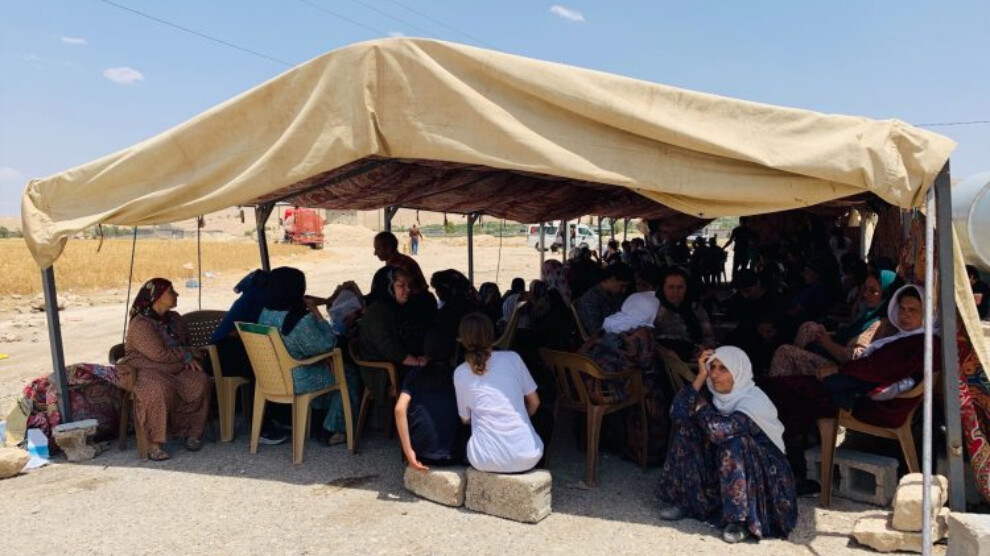Maxmur people’s resistance against Iraqi siege continues on day 16
The resistance of the residents of the Maxmur Refugee Camp in southern Kurdistan (northern Iraq) continues uninterrupted on its 16th day.
The resistance of the residents of the Maxmur Refugee Camp in southern Kurdistan (northern Iraq) continues uninterrupted on its 16th day.

The Iraqi army has been besieging Maxmur Camp since May 20, surrounding the self-governing camp with barbed wire and trenches and installing surveillance towers. The residents are putting up determined resistance around the clock and respond immediately to any attempt to advance the militarisation of the camp.
Several attempts by the security forces to enter Maxmur and implement the planned militarisation have so far failed due to the resistance of the residents. The people are blocking the army and thus preventing the establishment of an open-air prison. Diplomatic negotiations have not brought any results so far.
The residents of the camp continue to keep guard around the clock to defend their will.
They have erected guard tents where people discuss and sing on the 16th day of resistance against the siege.
About twelve thousand people live in Maxmur, which is located southwest of Hewlêr (Erbil) in an area disputed between the South Kurdistan regional government and the Iraqi government in Baghdad. A large part of the Maxmur residents was expelled by the Turkish state in the 1990s in the course of the anti-Kurdish "counterinsurgency" and the so-called scorched earth policy - under the pretext of fighting the PKK, about 3,000 villages were depopulated or burnt down at that time. After an odyssey of several years and stays in various camps, the people founded the Maxmur camp on the edge of the desert in 1998. The camp population thus forms the largest Kurdish refugee community worldwide.
Officially, Maxmur is under the protection and control of the United Nations Refugee Agency (UNHCR), but in practice the organisation is only nominally present. It left the camp during the attacks of ISIS in 2014 and did not return afterwards. In the course of the resistance in Maxmur against the military blockade, however, the organisation was forced to hold talks with the People's Council of the self-administered camp. The promises made by the UN and the government in Baghdad to end the siege have not yet been honoured.
Since 2019, the camp has been subject to an embargo by the government of the Kurdistan Region of Iraq (KRI), dominated by the Barzani party KDP, at Turkey's request. The Barzani clan collaborates with the Turkish state, including in the "fight" against the Kurdish guerrillas. The current crackdown on Maxmur Camp is also likely due to an initiative by the Turkish state, which criminalises the camp as a "breeding ground" of the Kurdish Workers' Party, PKK, and argues that the camp must be "cleaned up". The Maxmur People's Council suspects that Ankara is using water as leverage against Baghdad. Iraq has been suffering from a devastating drought for years and Turkey is believed to be making the dismantling of Maxmur Camp a precondition for lifting the water blockade of the Euphrates and Tigris rivers.